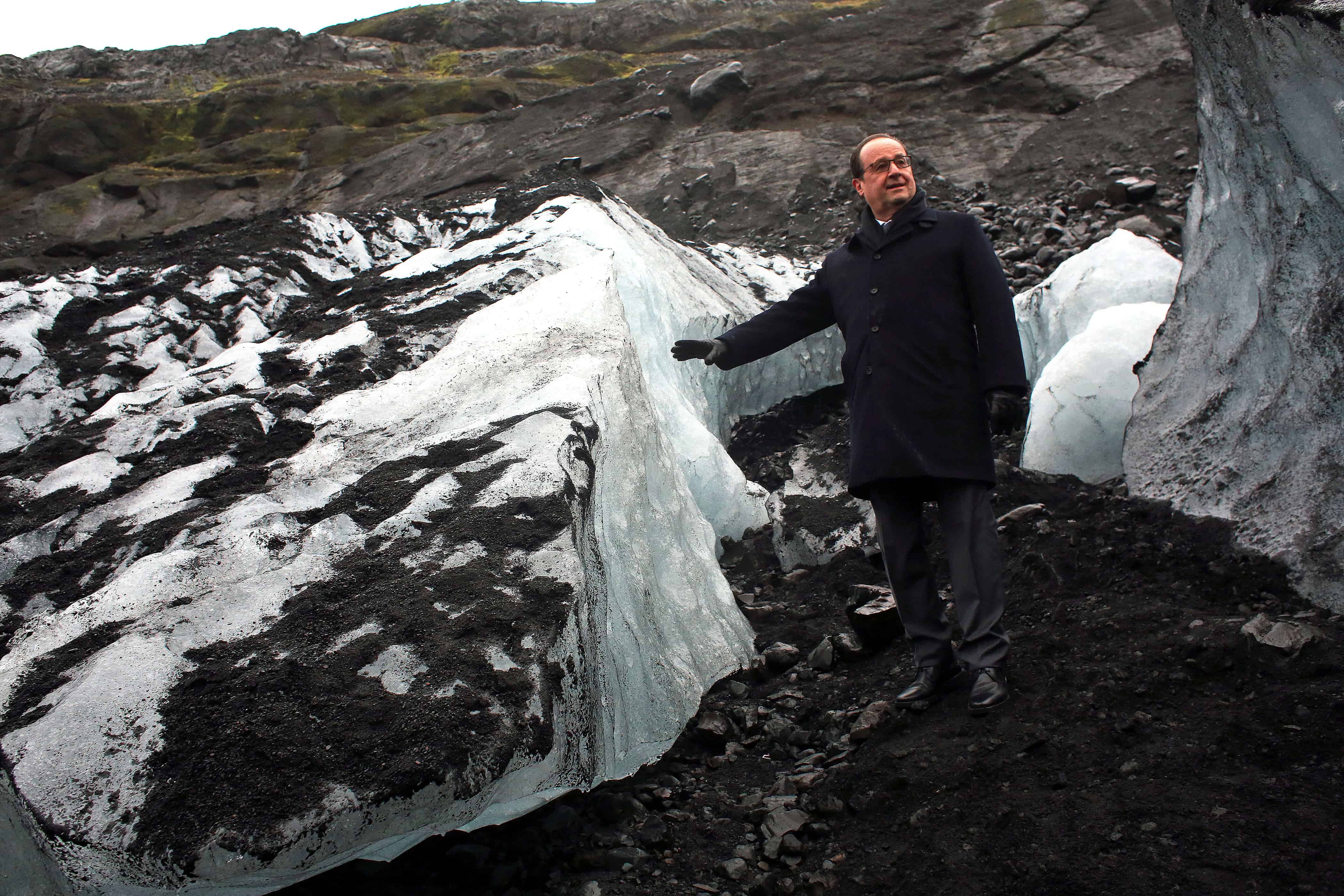BONN, Germany — Developing nations accused rich ones at crunch climate talks Monday of sidelining their interests, even as France’s president and the White House stepped up efforts to seal a global deal.
U.N. chief Ban Ki-moon said the 195-nation negotiations in Bonn were “frustrating” and “slow.”
“We don’t have any ‘plan B’ because we don’t have any ‘planet B,'” he told journalists in the Slovak capital Bratislava.
In Paris, French president Francois Hollande affirmed: “there will be a deal” coming out of the Nov. 30-Dec. 11 climate summit in the French capital, but cautioned against a hollow result.
“The question is at what level the agreement will be reached, and whether we will be able to revise it regularly,” he said. “That’s what is at stake.”
The White House hailed a pledge by dozens of major U.S. companies — whose CEOs were to meet with President Barack Obama later Monday — to back the climate accord and step up their own emissions reduction efforts.
In Bonn, however, talks took a detour when a bloc of more than 130 developing nations — including China and India — rejected a slimmed-down, draft agreement prepared for their five-day parlay, the last before the Paris summit.
The text, slashed from 80 to 20 pages by a pair of U.S. and Algerian diplomats leading the process, left out redline demands on finance and fairness, they complained.
The text as it stands “is extremely unbalanced and lopsided,” South Africa’s climate envoy Nozipho Mxakato-Diseko told an opening session, and “jeopardizes the interests and positions of developing countries.”
Diseko likened developed countries’ stance to “apartheid” and the disenfranchisement of blacks by South Africa’s racist regime.
Scientists say national carbon-curbing pledges submitted by more than 150 nations so far will not reach the U.N.-backed goal of preventing global temperatures from rising by more than two degrees Celsius (3.6 degrees Fahrenheit).
As a result, many nations, NGOs and observers demand the Paris deal must include provisions for regularly ramping up ambition. These Intended Nationally Determined Contributions, or INDCs, will be a pillar of the Paris agreement, due to enter into force in 2020.
Developing nations were also up in arms about the lack of assurances on financial aid.
Rich countries have pledged to cough up $100 billion per year from 2020 to boost carbon reduction efforts and help vulnerable states brace for impacts ranging from drought and superstorms to food shortages.
But so far, the wording has remained vague on where the money will come from, the split between grants or loans, and how much will be earmarked for boosting resilience.
The new draft “completely ignored the submissions of G77 on finance,” said Gurdial Singh Nijar, a spokesman for the Like-Minded Developing Countries (LMDC) group, which falls within the G77.
‘The world is watching’
The five-day huddle in Bonn offers the last chance for rank-and-file negotiators to barter on the wording of the pact meant to crown more than two decades of fractious negotiations. The draft that emerges will be taken in hand by ministers and heads of state for the hard political compromises that will be required to seal a deal in Paris.
“The whole world is watching us,” Peru’s Environment Minister Manuel Pulgar Vidal told negotiators.
“The (Paris) agreement must launch the transformation of our economies toward a low carbon and resilient … society.”
Rather than revising the draft agreement, as scheduled, diplomats spent Monday re-submitting paragraphs and pages into the streamlined document, intended as a basis for political decision-makers in Paris.
The climate pact would be the first signed by all the world’s nations.
The global thermometer has already gone up by 0.8 C since the mid-19th century, and U.S. government scientists have said 2015 is likely to overtake 2014 as the hottest year on record.
Based on emissions-curbing pledges so far, the planet is on course for warming of around 3 C, say analysts.






